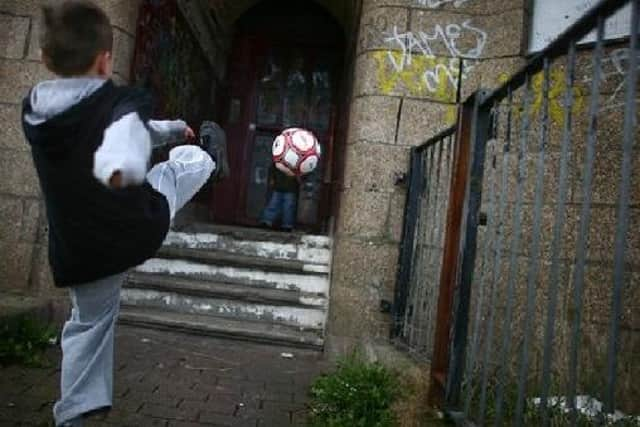We must invest more to meet poverty targets - Alison Johnstone


Yesterday was the start of Scotland’s annual Challenge Poverty Week.
It comes at a horribly difficult time for so many of our poorer families who were struggling even before the economic impact of Coronavirus.
Advertisement
Hide AdAdvertisement
Hide AdIt is a disgrace that in a country as wealthy as Scotland we have more than 230,000 children, almost a quarter, who are growing up in poverty.
This week, the Joseph Rowntree Foundation issued a stark warning that Scottish Government targets for reducing child poverty will be missed. But it doesn’t have to be that way. Additional cash in Child Benefits, Child Tax Credits and others produced big falls in poverty in the 2000s.
The forthcoming Scottish Child Payment is the Scottish Government’s flagship child poverty policy and Greens welcome it warmly, but only as a first step. And projections are that 118,000 children who are eligible for the payment will miss out, due to take-up far lower than Child Benefit.
The UK Government must play its part too, reversing the cuts that have done so much damage and retaining the temporary £20 increase to Universal Credit.
Advertisement
Hide AdAdvertisement
Hide AdWe shouldn’t lose sight of what we can do locally, as the much-awaited Edinburgh Poverty Commission’s report, A Just Capital, has shown us. The Commissioners heard evidence that getting help with housing, benefits and other issues is too difficult and bureaucratic and more local centres where different forms of support can be offered under one roof would be the “single biggest transformation Edinburgh could achieve” to tackle poverty.
Of those 230,000 children, 30,000 are in poverty mainly due to the cost of housing. That is why we need to continue to build many more homes for lower social rents; tackle short term lets and bring in much stronger rent controls.
Poverty is not inevitable. It is a result of political choices. We can ensure that we all have what we need if we are willing to pay for it through investment in our social security system, social housing and other public services. And like its approach to the Climate Emergency, the Scottish Government’s eye-catching targets aren’t going to solve it unless they are backed by action.
With just ten years to go to meet such ambitious poverty reduction targets, time for making these big, bold changes is running out.
Alison Johnstone is Green MSP for Lothian region
Comment Guidelines
National World encourages reader discussion on our stories. User feedback, insights and back-and-forth exchanges add a rich layer of context to reporting. Please review our Community Guidelines before commenting.